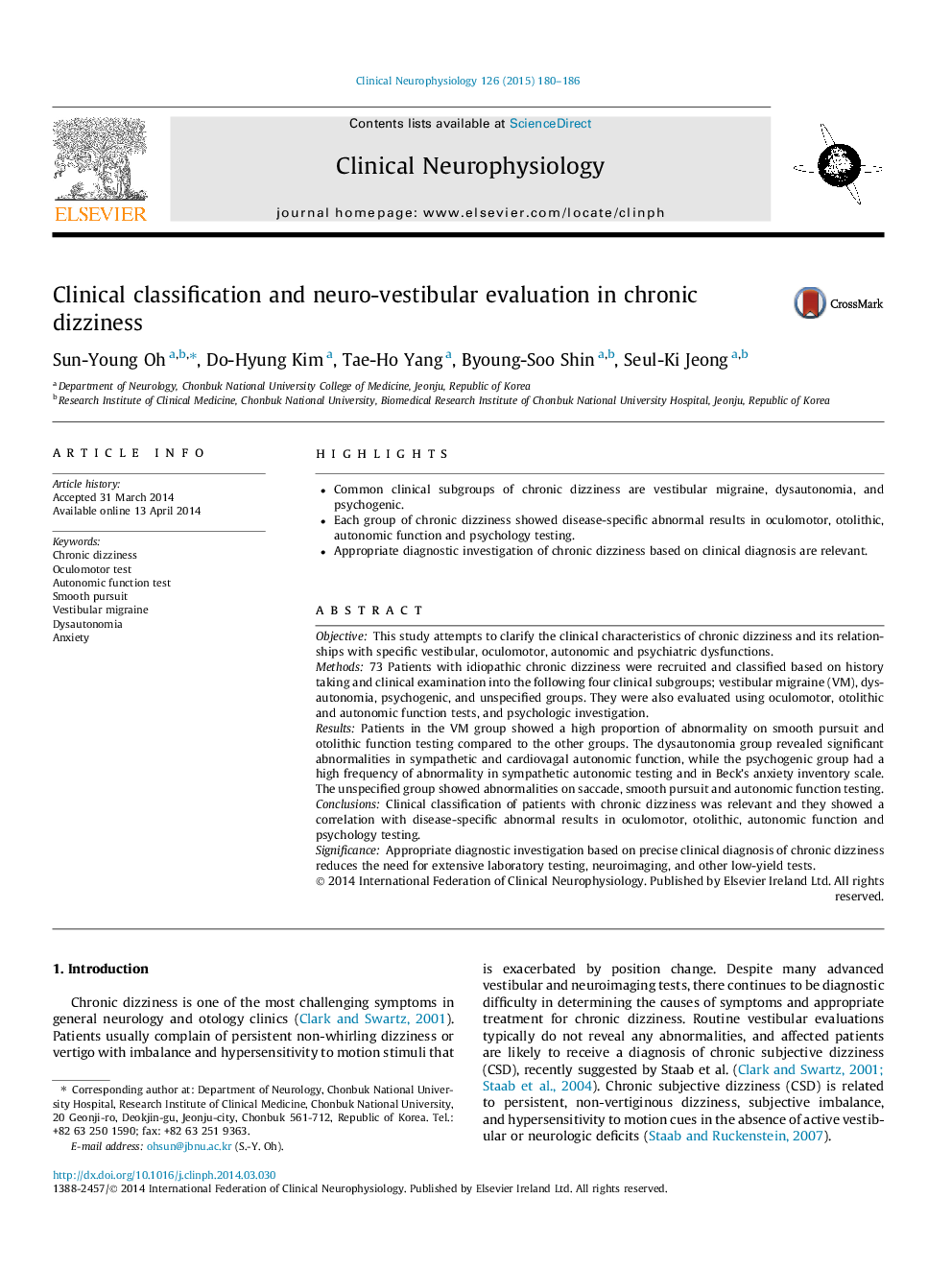| Article ID | Journal | Published Year | Pages | File Type |
|---|---|---|---|---|
| 3043225 | Clinical Neurophysiology | 2015 | 7 Pages |
•Common clinical subgroups of chronic dizziness are vestibular migraine, dysautonomia, and psychogenic.•Each group of chronic dizziness showed disease-specific abnormal results in oculomotor, otolithic, autonomic function and psychology testing.•Appropriate diagnostic investigation of chronic dizziness based on clinical diagnosis are relevant.
ObjectiveThis study attempts to clarify the clinical characteristics of chronic dizziness and its relationships with specific vestibular, oculomotor, autonomic and psychiatric dysfunctions.Methods73 Patients with idiopathic chronic dizziness were recruited and classified based on history taking and clinical examination into the following four clinical subgroups; vestibular migraine (VM), dysautonomia, psychogenic, and unspecified groups. They were also evaluated using oculomotor, otolithic and autonomic function tests, and psychologic investigation.ResultsPatients in the VM group showed a high proportion of abnormality on smooth pursuit and otolithic function testing compared to the other groups. The dysautonomia group revealed significant abnormalities in sympathetic and cardiovagal autonomic function, while the psychogenic group had a high frequency of abnormality in sympathetic autonomic testing and in Beck’s anxiety inventory scale. The unspecified group showed abnormalities on saccade, smooth pursuit and autonomic function testing.ConclusionsClinical classification of patients with chronic dizziness was relevant and they showed a correlation with disease-specific abnormal results in oculomotor, otolithic, autonomic function and psychology testing.SignificanceAppropriate diagnostic investigation based on precise clinical diagnosis of chronic dizziness reduces the need for extensive laboratory testing, neuroimaging, and other low-yield tests.
